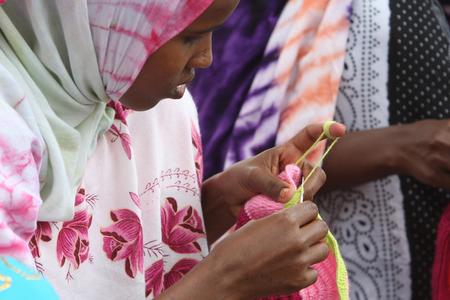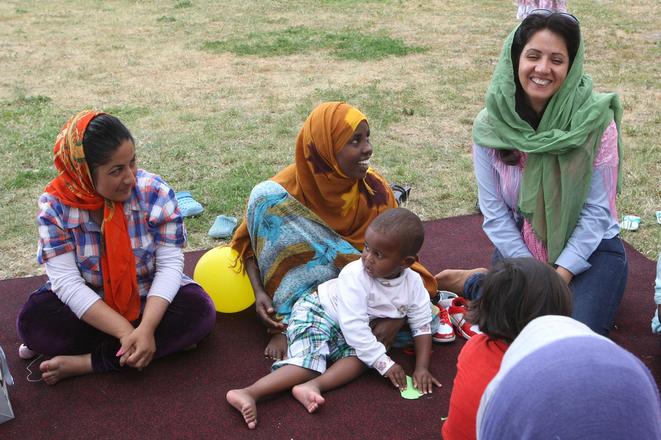To achieve this, however, the government needs to adopt measures which will not make it only a temporary stop for those searching for protection, according to Zuzana Števulová, head of the non-governmental organisation Human Rights League. The Slovak Spectator spoke with Števulová about the ways Slovakia can contribute to solving the refugee crisis in Europe, in response to the June 25-26 summit of the European Council, at which EU leaders rejected mandatory quotas for refugees.
The Slovak Spectator (TSS): The Human Rights League and other non-governmental organisations delivered an open letter to the government, asking it to join the European agenda on migration, including accepting refugees, in mid-June. Have you already received a response?
Zuzana Števulová (ZŠ): We have not received any answer yet. But the state authorities usually have 30 days to respond, so we are waiting. We recommended to the prime minister that Slovakia should accept the refugees on its territory voluntarily, either via the quota system or its own decision. We also suggested opening legal routes [for migration] and other realistic measures which Slovakia should come up with immediately, without changing any laws. But political will is necessary to realise it. And we also expect that within its voluntary contribution, Slovakia will resettle some refugees to its territory.

TSS: Prime Minister Robert Fico has indicated several ways in which Slovakia can contribute to solving the current crisis, like sending soldiers to Libya or accepting Christian families from Syria. What signal does this send to the public?
ZŠ: Slovakia should behave as a responsible partner, as a member of the European Union and the Council of Europe, and as a country which belongs to the 50 richest nations in the world. It should try to solve the issues forcing people to flee. Every measure has its meaning, but it would be appropriate if the politicians realised that there is not just one magic measure. The problem requires several solutions. In addition to striving to solve the military conflicts and to help poor countries with development aid, we have to take care of people who are on the run now.
We can help by participating in resettlement programmes, or opening legal ways for the arrival of refugees, which is the most effective way to fight smugglers. The smugglers have their business only because there are refugees, and the interest of refugees in illegal ways will exist until legal ways are available. It is an illusion to think that the refugees will follow some quota system in the EU. For them it is important to leave the zones of danger and conflict and arrive in a safe country.
TSS: The ministries of interior and foreign affairs say that Slovakia feels solidarity with refugees, and runs several programmes to help them. Do you consider this sufficient?
ZŠ: If you mean the transit centre in Humenné, then we do not consider it to be a sufficient contribution. Though it is a way to help some people, the fact is that all these measures, including the transit centre and offering accommodation for asylum seekers from Austria, are about providing some temporary places. In the case of transit centres, these people can then leave to the United States or Canada, and in the case of asylum seekers from Austria they can return there. So we expect our government to offer a voluntary contribution thanks to which people will actually relocate here.
Moreover, the argument that the refugees do not want to stay here is incorrect. If we do not want to be the target country, we cannot blame the refugees for leaving us. We still offer the solutions which make us the transit country, so we cannot be surprised that people do not want to stay here. But our experience from working with refugees confirms that if we offer people who are granted asylum or additional protection here, help with integrating into society, with searching for a job, they stay and find a new home here.
TSS: Interior Minister Robert Kaliňák insisted before the summit in Brussels that Slovakia needs to keep spaces in case the conflict in Ukraine escalates and Ukrainians will start fleeing to Slovakia. Is this argument relevant?
ZŠ: It is not the argument which should decide this discussion. It is not probable that the conflict in Ukraine will spread to the whole country. It seems that it will stay in the regions where it is now and that it will be frozen. All participating parties at least express their will to end the fights. So from this point of view I do not see any real threat of the huge number of Ukrainians coming to Slovakia.
Currently, we have Syrians in Europe, who are the most numerous group, and also thousands of people whom the Italians and the Greeks save every week from the sea. This is what we have to solve now. The argument with Ukrainian situation is actually some kind of fabrication which relates to some possibility that may emerge in the future. But this does not relieve us from the responsibility to help people who are in danger now and who meet the definition of refugee that is included in our own laws.


 Illustrative stock photo (source: SME)
Illustrative stock photo (source: SME)